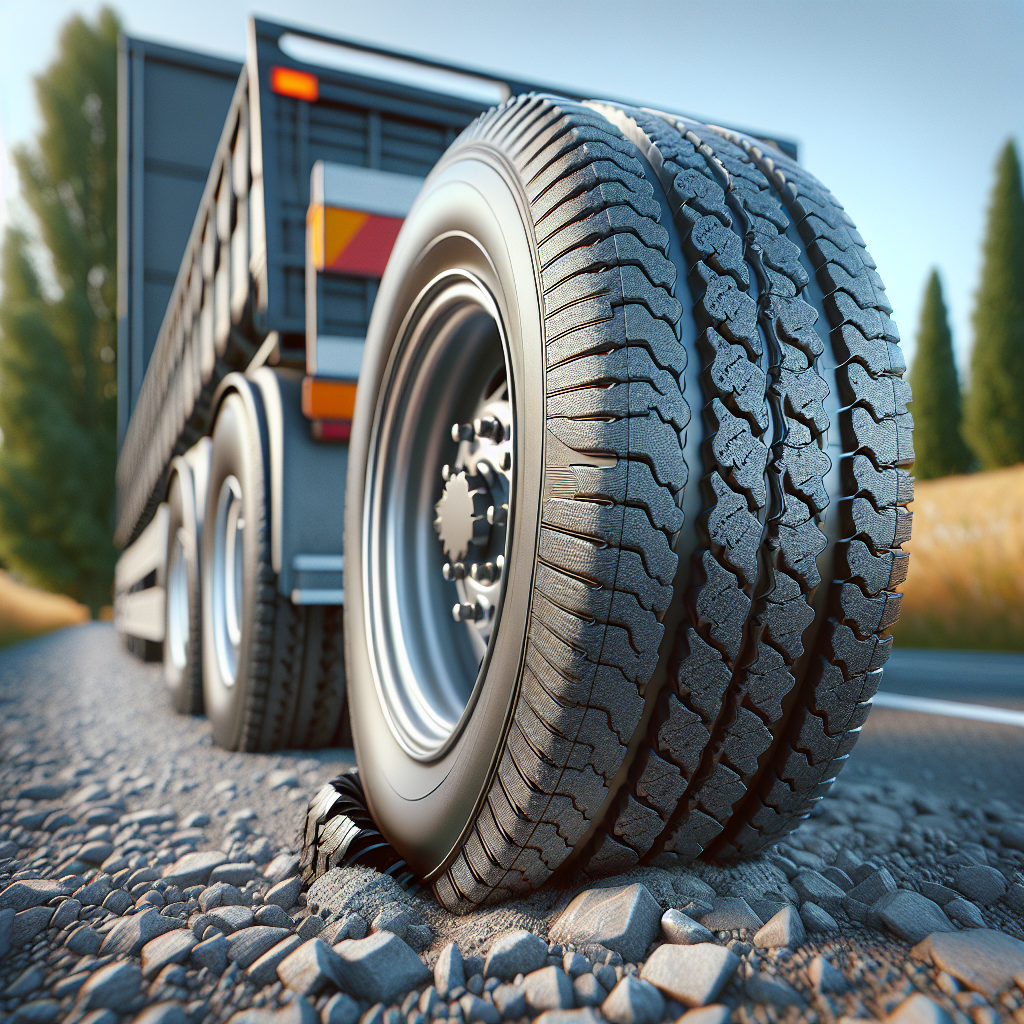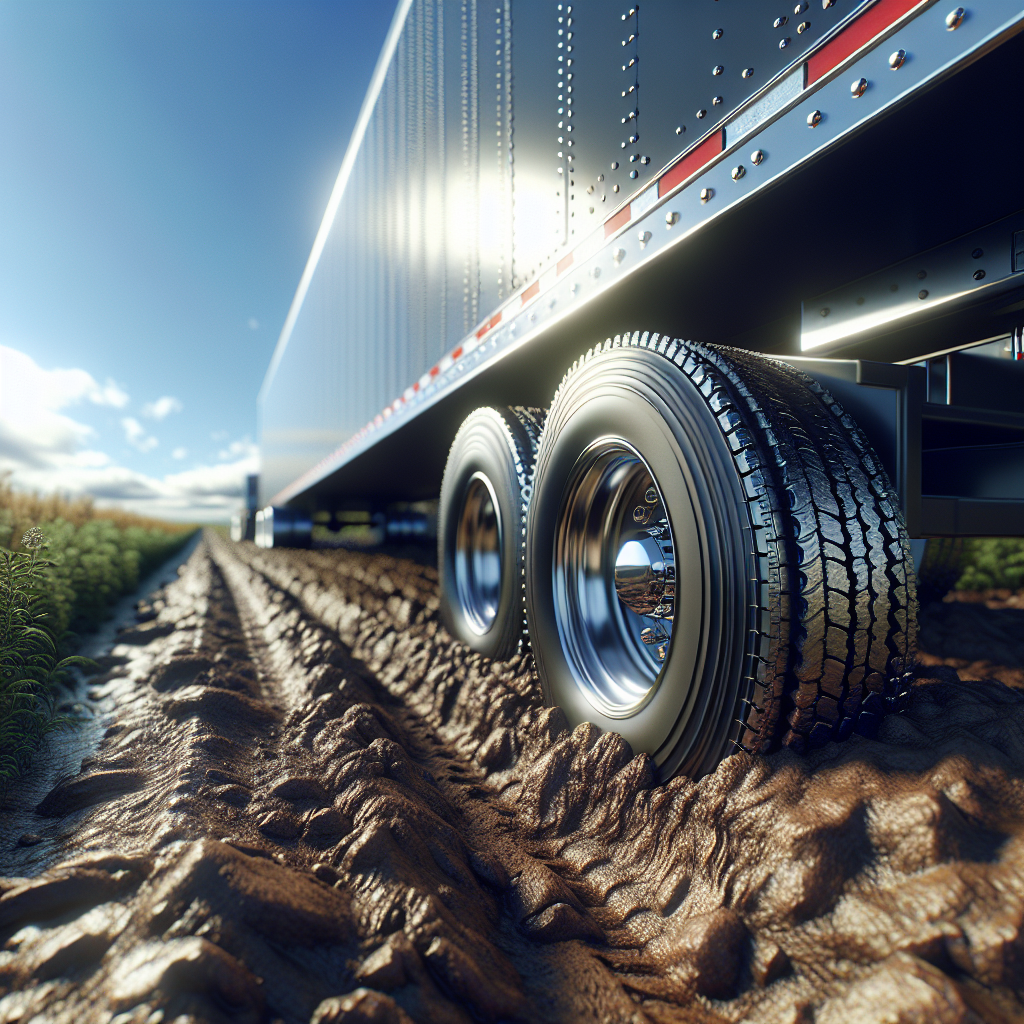Maintaining the correct tyre pressure for your trailer is crucial for both safety and performance. Many trailer owners overlook this essential aspect, but understanding its importance can prevent potential hazards on the road. Proper tyre pressure ensures that your trailer operates smoothly, maintaining optimal handling and stability during transit.
When tyre pressure is too low, it can lead to:
- Increased tyre wear: Under-inflated tyres flex more, generating excess heat and leading to faster degradation.
- Poor fuel efficiency: Low pressure increases rolling resistance, resulting in higher fuel consumption.
- Risk of blowouts: Insufficient pressure raises the likelihood of tyre blowouts, which can lead to catastrophic accidents.
Conversely, over-inflated tyres can also pose serious risks, such as:
- Reduced traction: Over-inflation can lead to a smaller contact patch with the road, compromising grip.
- Uneven wear: Tyres may wear out more quickly in the center, leading to costly replacements.
By regularly checking your trailer's tyre pressure, you can ensure that it remains within the manufacturer's recommended range. This simple maintenance task not only enhances safety but also extends the lifespan of your tyres, ultimately saving you money.
To ensure your trailer is always in top condition, tow with peace of mind, knowing that trailerwatchdog is standing guard.
How to Determine the Correct Tyre Pressure for Your Trailer

Determining the correct tyre pressure for your trailer is essential for safe and efficient towing. The right pressure not only enhances the performance of your trailer but also helps in prolonging the life of your tyres. Here are some steps to accurately find the appropriate tyre pressure:
- Check the Manufacturer's Recommendations: Most trailers come with a sticker or plate located on the frame or inside the door that lists the recommended tyre pressure. This information is crucial as it is tailored to your specific trailer model.
- Use a Reliable Pressure Gauge: Invest in a quality tyre pressure gauge, which can either be digital or analog. When checking pressure, ensure the tyres are cold, as heat from driving can affect the readings.
- Know the Load Capacity: If you frequently carry heavy loads, it may be necessary to adjust the tyre pressure according to the load capacity. Refer to the load tables provided by the manufacturer for guidance.
- Monitor Environmental Conditions: Temperature changes can significantly affect tyre pressure. For every 10°F change in ambient temperature, tyre pressure can change by approximately 1 PSI. Adjust accordingly based on the seasons or weather conditions.
Regularly checking and maintaining the correct tyre pressure will ensure that your trailer operates smoothly and safely. This proactive measure can help avoid unexpected breakdowns and enhance your overall towing experience.
Common Factors Affecting Trailer Tyre Pressure
Understanding the common factors that affect trailer tyre pressure is vital for ensuring safe towing and optimal performance. Several elements can influence tyre pressure, leading to potential safety hazards or inefficiencies:
- Temperature Variations: As temperatures rise or fall, the air inside the tyre expands or contracts, causing fluctuations in pressure. Typically, a drop of 1 PSI occurs for every 10°F decrease in temperature.
- Load Weight: The weight of the load carried by the trailer directly impacts tyre pressure. Overloading can lead to insufficient pressure, while lighter loads might require adjustments to maintain optimal performance.
- Tyre Wear and Age: Older tyres or those with uneven wear patterns may not hold air as effectively, causing a decrease in pressure. Regular inspection for wear and tear is essential to maintain safety.
- Altitude Changes: If you're towing your trailer at higher altitudes, the atmospheric pressure decreases, which can lead to a relative change in tyre pressure. It's important to adjust accordingly when traveling to elevated regions.
- Frequent Stops and Starts: If you often brake hard or accelerate rapidly, it can generate heat in the tyres, potentially affecting their pressure. Maintaining a smooth driving style can help in regulating tyre temperature and pressure.
By being aware of these factors, trailer owners can take proactive steps to maintain the correct tyre pressure, ensuring a safer and more efficient towing experience.
Best Practices for Maintaining Trailer Tyre Pressure

Maintaining the correct trailer tyre pressure is crucial for safety and performance. Here are some best practices to help you keep your tyre pressure at optimal levels:
- Regular Inspections: Check your tyre pressure at least once a month and before long trips. Use a reliable pressure gauge to ensure accuracy.
- Follow Manufacturer Guidelines: Always refer to the manufacturer’s specifications for recommended tyre pressure. This information is typically found on a sticker inside the trailer door or in the owner’s manual.
- Adjust for Load: If you're carrying a heavier load, adjust your tyre pressure accordingly. Many manufacturers provide guidelines for pressure adjustments based on load weight.
- Temperature Awareness: Be mindful of the temperature outside. As mentioned earlier, changes in temperature can affect tyre pressure. Adjust your tyre pressure based on current weather conditions.
- Monitor Tyre Condition: Regularly inspect your tyres for signs of wear, such as cracks or bulges, and ensure they are balanced and aligned properly. This not only helps maintain pressure but also extends the life of your tyres.
- Use TPMS: Consider installing a Tyre Pressure Monitoring System (TPMS) for real-time monitoring. This technology can alert you to any significant pressure drops while on the road.
By implementing these best practices, trailer owners can ensure their tyres remain in optimal condition, promoting safety and enhancing the overall towing experience.
Signs of Improper Tyre Pressure in Trailers

Recognizing the signs of improper tyre pressure is essential for maintaining the safety and performance of your trailer. Whether your tyres are under-inflated or over-inflated, each condition presents unique indicators that should not be ignored:
- Uneven Wear: Inspect your tyres regularly for signs of uneven wear patterns. If the outer edges of the tyre are worn down more than the center, this could indicate under-inflation. Conversely, if the center is worn more than the edges, it may signal over-inflation.
- Frequent Blowouts: A significant increase in blowouts may point to persistent improper tyre pressure. Both under-inflated and over-inflated tyres are at greater risk of failure due to irregular wear and excessive heat.
- Poor Handling: If your trailer feels unstable or hard to steer, this could be a sign of uneven tyre pressure. Under-inflated tyres can cause a trailer to sway, while over-inflated tyres may lead to a harsh ride and loss of traction.
- Increased Fuel Consumption: Improper tyre pressure can affect your vehicle’s fuel efficiency. If you notice a sudden increase in fuel consumption, it may be time to check the tyre pressure.
- Tyre Vibration: Excessive vibration while towing can indicate an issue with tyre pressure. This can lead to uncomfortable driving experiences and further damage to the trailer.
- Tyre Temperature: An unusually high temperature when touching the tyres after a drive can indicate improper pressure. Under-inflation typically raises temperatures significantly, risking tyre failure.
Being vigilant about these signs will help you take timely action to maintain your trailer's tyre health, ensuring a safer towing experience.
How Trailer Monitoring Systems Can Help

In the modern world of trailer management, trailer monitoring systems are game-changers. These innovative systems provide real-time data on various aspects of your trailer, particularly focusing on tyre pressure and axle temperature, which are crucial for preventing catastrophic failures.
Here’s how a trailer monitoring system can enhance your towing experience:
- Real-Time Alerts: By continuously monitoring tyre pressure and temperature, these systems send instant alerts if any readings fall outside the safe range. This allows you to address issues before they escalate into serious problems.
- Data Logging: Monitoring systems can log data over time, providing insights into trends and helping you identify recurring issues. This data can be invaluable for planning maintenance and ensuring optimal tyre health.
- Enhanced Safety: With the ability to monitor multiple trailers simultaneously, fleet operators can ensure that all units are in optimal condition, minimizing the risk of accidents caused by tyre failures.
- Remote Monitoring: Many systems allow for remote access via smartphone or computer, enabling you to keep an eye on your trailers even when they are not in your immediate vicinity.
- Cost Savings: By preventing tyre blowouts and other failures, trailer monitoring systems can save you significant costs associated with repairs, downtime, and potential accidents.
Tow with peace of mind, knowing that trailerwatchdog is standing guard to protect your investment and ensure a safe journey.








